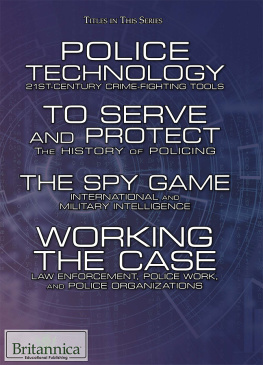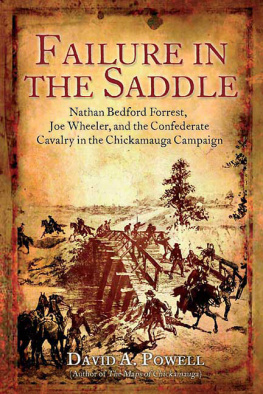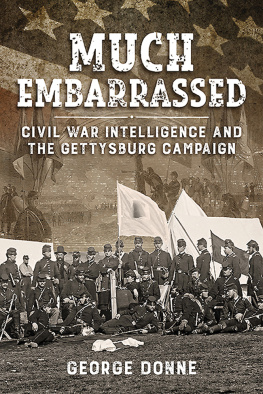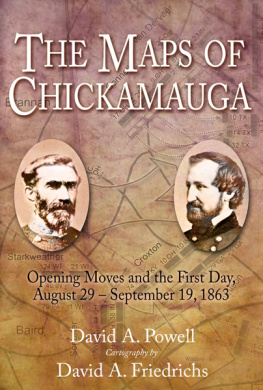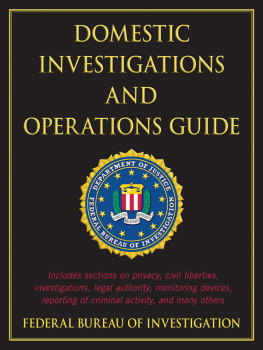This edition is published by PICKLE PARTNERS PUBLISHINGwww.picklepartnerspublishing.com
To join our mailing list for new titles or for issues with our books picklepublishing@gmail.com
Or on Facebook
Text originally published in 2000 under the same title.
Pickle Partners Publishing 2014, all rights reserved. No part of this publication may be reproduced, stored in a retrieval system or transmitted by any means, electrical, mechanical or otherwise without the written permission of the copyright holder.
Publishers Note
Although in most cases we have retained the Authors original spelling and grammar to authentically reproduce the work of the Author and the original intent of such material, some additional notes and clarifications have been added for the modern readers benefit.
We have also made every effort to include all maps and illustrations of the original edition the limitations of formatting do not allow of including larger maps, we will upload as many of these maps as possible.
ABSTRACT
THE BLAME GAME: FEDERAL INTELLIGENCE OPERATIONS DURING THE CHICKAMAUGA CAMPAIGN by Major Paul A. Shelton, USMC.
This thesis examines intelligence operations conducted by Major General Rosecrans Army of the Cumberland during the initial phases of the Chickamauga Campaign (11 August to 16 September 1863). The thesis methodology is a detailed analysis of all intelligence reports received by the headquarters and a detailed examination of all outgoing correspondence from the headquarters intended to identify the analytical process used and the impact of intelligence on Rosecrans decision making during the campaign. The record shows that contrary to popular historical opinion there was significant intelligence available indicating the probable Confederate course of action. General Rosecrans and his staff actively discounted information that did not conform to their pre-conceived expectation or template of the enemy with tragic results for the Army of the Cumberland. This thesis highlights several timeless lessons of relevance to the modern military officer: the importance of focused intelligence collection operations, the requirement for clear thinking and disciplined analysis of intelligence reporting, the dangers of over-confidence and preconceptions, the hazard of focusing on ones plan instead of the enemy, and the importance of avoiding group-thinking among a staff.
CHAPTER 1 INTRODUCTION
We have just received official information that Vicksburg surrendered to General Grant on the 4th of July, Lee's army overthrown, Grant Victorious. You and your noble army now have a chance to give the finishing blow to the rebellion. Will you neglect the chance ? {1} Secretary of War Edwin M. Stanton, The Edge of Glory
On the seventh of 7 July 1863, one hundred cannon fire a salute that echoes through the trees and hills of middle Tennessee as Major General William Starke Rosecrans' Army of the Cumberland honors the victories of Federal Armies at Vicksburg and Gettysburg. After over two long years of war and repeated defeat at the hands of the Confederate Army, the tide is perceptibly turning against the Confederate States of America. On 8 July the noted Confederate diarist Mary Chesnutt is aboard a train to Alabama and faints when she hears the news. I felt as if I had been struck a hard blow on the top of my head, and my heart took one of its queer turns, she wrote {2} The Army of the Cumberland had just concluded a masterful campaign that resulted in the seizure of middle Tennessee at the cost of a mere eighty-three killed. Soldiers now cite the Tullahoma Campaign as a classic masterpiece of maneuver warfare, yet no praise was forthcoming from Washington. Rosecrans duly turns to preparations to seize the key to the ConfederacyChattanooga.
The resultant campaign for Chattanooga would see yet another stunning success when Rosecrans turned Confederate General Braxton Bragg's prepared defensive positions and dislocated his forces, entering Chattanooga bloodlessly on 9 September.
Yet eleven days later on 20 September Rosecrans would telegraph Major General Henry Halleck, General-in-Chief of Federal forces, We have met with a serious disaster. {3}
What happened? Popular history holds that Rosecrans allowed his corps to become too widely dispersed in the rugged Tennessee hills, conducted a hasty and ill-organized pursuit and fell victim to a carefully managed disinformation campaign waged by General Bragg. This thesis will consider the key question, why did General Rosecrans fail to accurately estimate General Bragg's course of action during the Chickamauga Campaign?
This thesis will consider a number of factors that influenced Rosecrans' operations and evaluate his major actions in their informational context. This thesis will open with an overview of Rosecrans' experiences in the war prior to Chickamauga. The focus of this chapter will be the development of recurring themes vis--vis intelligence operations and synthesis, interpersonal relationships with subordinate, adjacent and superior commanders, and external pressures and motivations that may have influenced Rosecrans during the Chickamauga Campaign?
This thesis will next examine the intelligence structure of the Army of the Cumberland. The full spectrum of Civil War intelligence sources will be considered, to include cavalry scouting, signals, prisoner interrogations, refugee and citizen reports, open source or newspaper reporting, and agent operations. The staff's method of handling reports, analyzing them and producing a synthesized multisource product will be examined, as will the critical role played by higher headquarters reporting (or lack thereof) from Washington and information sharing between the Army of the Cumberland and adjacent armies.
Three successive chapters will be dedicated to a study of the operation itself, beginning with campaign planning and culminating with the opposing armies poised to commence pitched battle along Chickamauga Creek on 16 September. A thorough review of information reported to Rosecrans' headquarters will be conducted with a goal of determining what information the General Commanding used in formulating his plans, and perhaps more importantly, what information he chose to discount. A frequent error of historians is the failure to evaluate commander's actions using the information available to them at the time of the actioncare will be taken to avoid this pitfall and add to the quality of the historic record by adherence to the concept of informational context.
This paper will conclude with a discussion of lessons learned from the campaign that are of relevance to modern commanders. There are certainly timeless aspects of Chickamauga that ring clear through the years. Many times we hear that modern commanders are subject to new pressures from the political branch of government, unnecessary and unwelcome meddling enabled by the wonders of modern telecommunications. An examination of the hounding General Rosecrans received from General Halleck, Secretary Stanton, and even the President himself shows that political pressures are nothing new. The resilience of preconceived notions and the challenge of acknowledging a mistaken perception of the enemy remain major obstacles to the accurate analysis of intelligence for intelligence professionals and commanders alike. The lessons are timeless. Mastery of the lessons can help the Army us prevent future defeats where it simply fails to see the message on the tabledefeats, such as Vietnam, Beirut, and Mogadishu, where the reality is so blindingly apparent in retrospect.




